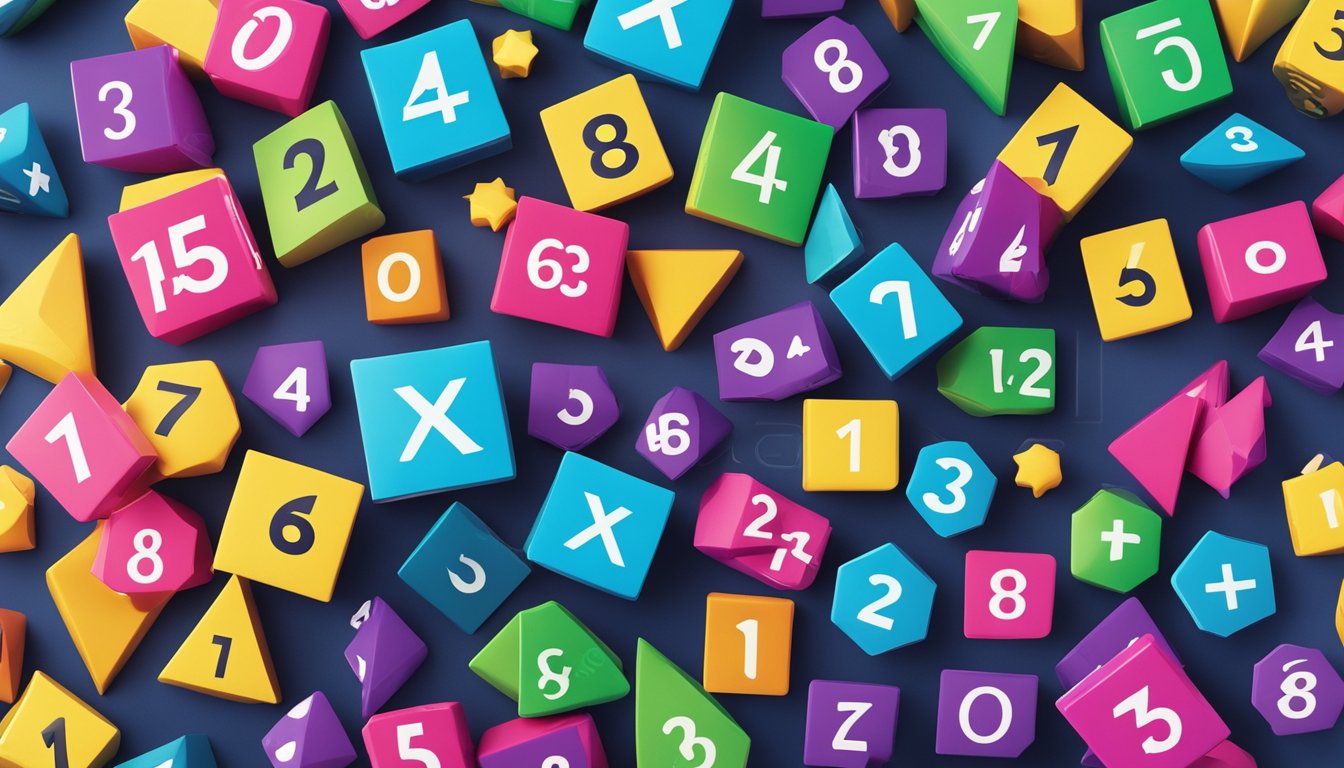Late updated: 18 Apr 2025 09:04
Written by:
Fun Maths Games To Support Primary School Learning: Engaging Activities for Young Minds
Engaging children in learning can sometimes be a challenge, especially with subjects that many find difficult, like mathematics. Incorporating fun and engaging maths games into their learning routine can transform these challenges into opportunities. By using games, we can enhance learning by creating an interactive environment that makes complex concepts more accessible and enjoyable.

With an array of games available, both in the classroom and at home, it's easier than ever to find activities that align with different learning levels and styles. Whether it's using classic games like "Math Bingo" or digital platforms offering interactive experiences, these tools offer a variety of formats to suit each child's needs.
Join us as we explore engaging games that not only reinforce mathematical skills but also inspire a love for learning amongst primary school students.
Key Takeaways
- Fun games can enhance and simplify learning.
- Variety of game formats can match different learning styles.
- Games inspire children to enjoy mathematics.
Essential Fun Maths Games for Primary School Learning
Incorporating engaging maths games into the classroom can significantly enhance primary school students' understanding of various mathematical concepts. These activities are designed to develop skills in number sense, addition, and fractions, using interactive and enjoyable methods.
Number Sense and Place Value Games
Developing a strong number sense and understanding place value is foundational in primary maths education. Number line games support students in visualising numbers and their relative positions. Place value activities using blocks or cards make abstract concepts tangible by allowing students to manipulate thousands, hundreds, tens, and units physically.
Online math games offer interactive experiences where students can arrange numbers on a virtual number line or classify numbers into correct place values. Such activities are crucial for building confidence and comprehension in young learners. Incorporating math games for kids can make learning these concepts more accessible and enjoyable.
Addition, Sums, and Problem Solving Activities
Addition and problem-solving skills are core components of mathematical literacy. We can utilise games like "sum stacks", where pupils stack number blocks to reach a target sum, reinforcing addition skills.
Interactive online math games provide platforms for students to practise their addition skills in a fun setting. Games that challenge students to solve puzzles or escape rooms by calculating sums promote critical thinking and application of learned concepts. These activities not only solidify addition knowledge but also engage students in meaningful problem solving, crucial for their development.
Games for Fractions, Decimals, and Money
Understanding fractions, decimals, and money is vital for real-world applications. Fraction games help demystify the concept of parts of a whole, using visual aids such as fraction circles or bars. These help students grasp how fractions operate through hands-on experience.
Decimal activities can incorporate featured games that transition fractions to decimals, reinforcing the relationship between them. Engaging students with games involving money enables them to learn transactional math and budget calculation, which are practical life skills.
By incorporating these interactive and fun maths games, we foster a deeper understanding and appreciation of mathematics among our young learners.
Engaging Maths Activities for the Classroom and Beyond

Incorporating interactive and fun maths games significantly enhances primary school students' learning experiences. By applying diverse methods, we can support their comprehension and retention of mathematical concepts.
Popular Board and Digital Maths Games
Traditional board games and modern digital platforms offer excellent opportunities for maths enrichment. Games such as 2048 and tic tac toe provide engaging ways to understand numbers and strategy. Bingo transforms numerical recognition into a competitive, enjoyable experience. Meanwhile, digital platforms often feature math games that allow students to practise in their own time, honing skills through interactive play. These tools blend learning with entertainment, motivating students to explore further.
Geometry, Factors, and Exponents Challenges
Exploring the realms of geometry, factors, and exponents introduces students to advanced concepts in an accessible manner. Activities can include designing structures to understand three-dimensional shapes, which deepens their grasp on geometry. Using cards or everyday objects to explore factors engages students actively, demystifying multiplication and division. Exponents become less intimidating with simple calculations illustrated through games. By relating these ideas to tangible tasks, students develop a firmer grasp.
Interactive Resources and Strategies for Teachers
Teachers have a variety of strategies to make maths lessons more engaging. Incorporating interactive resources such as online worksheets and interactive whiteboards allows us to deliver dynamic content. Classroom games like trashketball harness competitive spirit, motivating students while effectively reinforcing arithmetic operations. Teachers can set up timed challenges to cultivate a sense of urgency and competition. This approach encourages all students to participate, creating a lively learning environment.
Time and Rounding Practice Games
Practising time-related skills engages students with real-world applications. Clocks and time-telling activities can be transformed into enjoyable group exercises, ensuring students learn in a collaborative environment. Rounding games also enhance number skills, prompting students to consider approximations and estimations. These exercises solidify their understanding of crucial concepts in a light-hearted way. By embedding maths into everyday contexts, students gain valuable life skills while enjoying the learning process.
Frequently Asked Questions

In this section, we address some common inquiries about incorporating fun and engaging mathematical activities into primary school education. Our goal is to support teachers in creating a vibrant learning environment that makes maths enjoyable and accessible.
What are some enjoyable mathematical activities suitable for primary pupils?
Maths activities like puzzles and hands-on manipulatives can captivate young minds. Games involving counting or pattern recognition are especially effective in maintaining children's interest and encouraging their enthusiasm for learning maths.
Can you suggest interactive maths games that are ideal for classroom settings?
Interactive games such as Bingo and Quick Maths Challenges make maths engaging. These games are perfect for promoting competition and teamwork among pupils while reinforcing essential mathematical concepts in a lively setting.
How can I incorporate creative maths tasks into my primary school teaching?
Incorporate tasks like designing simple board games or embarking on shape scavenger hunts. These activities foster creativity while honing skills in problem-solving and critical thinking, making maths both educational and fun.
Are there online maths games that cater to an entire class?
Platforms offering online multiplayer maths games can engage an entire class in learning together. These games usually cover a range of topics, allowing pupils to practise maths skills collaboratively in a digital environment.
Which maths games are recommended for enhancing primary school learning?
Recommendations often include games that blend education with entertainment, such as Maths Jeopardy or digital puzzle apps. These can support various learning objectives and cater to diverse skill levels within a primary classroom.
What resources provide detailed instructions for conducting fun maths games in high school?
While high school teaching is not our primary focus, resources like educational websites and teaching forums can offer step-by-step guides. These resources often contain detailed instructions and variations on how games can be adapted for older students.
